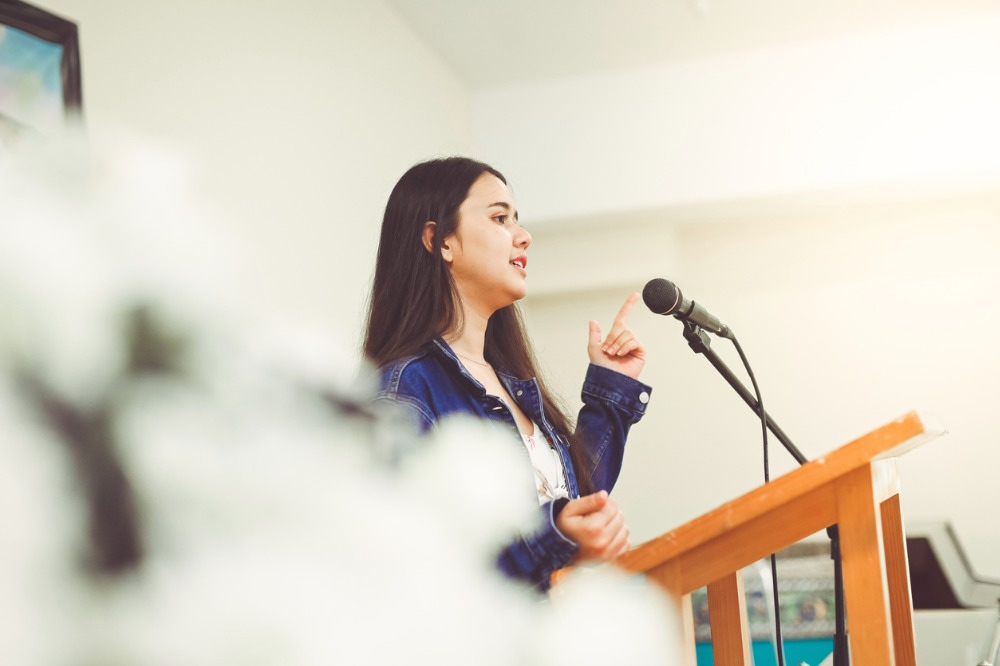
Locate a healthy, thriving democracy and chances are its educational institutions will have robust Arts and Humanities classes and courses where critical thinking features strongly from primary right through to the tertiary level.
Locate an oppressive autocracy and you'll almost certainly find that the opposite is true.
Here in Australia, we see upsetting news reports about democracies like Hungary, Brazil and Hong Kong, whose political systems have been sliding towards authoritarianism in recent years.
But do we recognise the trend in our own backyard?
In 2007, 86% of voters were satisfied with Australia’s democracy, but that figure dropped to 72% by 2010 and then went into freefall from 2013, plummeting from 72% to 41% between 2013 and 2018.
According to results from the 2019 National Assessment Program – Civics and Citizenship (NAP-CC), just 38% of Year 10 students reached the standard of knowledge on civics and citizenship required for their year level in 2019 – the same percentage as in 2016. In Year 6, 53% achieved the benchmark, down from 55% in 2016.
Experts say this worrying slide has grave implications for the future of democracy in Australia.
'Young people are being given an impoverished curriculum'
Stewart Riddle, Associate Professor of Curriculum and Pedagogy at the University of Southern Queensland’s School of Education, says the percentage of Year 10 students at or above the proficient standard (38% in 2019 NAP-CC) is “alarmingly low”, given that NAP-CC tests young people’s knowledge and understanding of Australian democracy, civics and citizenship.
“I think this is particularly pertinent when you consider that students who scored higher on the NAP-CC test also generally placed more importance on civics and citizenship values and behaviours in the survey,” Assoc/Prof Riddle told The Educator.
“This seems to indicate that there is some link between the depth of knowledge and understanding of civics and citizenship within the Australian context, and young people’s attitudes, beliefs and values”.
Assoc/Prof Riddle said that if Australia wants to have a thriving (or even a functioning) democratic society, young people need to be given opportunities to not only learn about civics and citizenship, but also to practise their civic engagement in authentic ways.
“There is a long tradition of research into democratic education that stretches back to John Dewey, but the basic idea is that authentic and meaningful participation in democratic practices gives the best chance for young people to critically and creatively make sense of their world,” he said.
"With the cuts to Arts and Humanities courses in universities as part of the federal government’s ‘Job-Ready Graduates’ reforms and the insistent emphasis on ‘back to the basics’ in schools, it is clear that young people are being given an impoverished curriculum that has little to do with increasing their critical and creative engagement with society as capable and informed citizens".
‘Very dangerous grounds’
Dr David Roy, a lecturer at the University of Newcastle, said successful democracies often create better societies because they consider the Arts as equally important to other areas of the curriculum.
“We’ve lost that in Australia because of our disproportionately big focus on workplace skills at the expense of social and emotional learning and how to create a better society that doesn’t feed off the hate of extremism,” Dr Roy told The Educator.
“English is not just about teaching literature and teaching ways of thinking and caring. History isn’t about just teaching facts, it’s about learning from the past and questioning how we look at the past so we can have a better present and create a good future”.
Dr Roy said the Humanities are being diminished at the primary, secondary and tertiary level “by the policies that people with a say in society are creating”.
“That’s what this research shows – that Humanities are a power and can effect positive change. We don’t need to reinvent the wheel – we just need to engage with kids and treat them equally,” he said.
“Leadership can learn from that by saying ‘we don’t need to find something new – it’s there already’ and we need to empower our teachers with knowledge so they can impact change”.
Dr Roy said the fact that Arts and Humanities courses are being outpriced means the situation is unlikely to improve in 2021, and that the impact of this has grave implications for the future of democracy in Australia.
“It’s almost as if the government doesn’t want people to think. When we consider what’s happening in Parliament in terms of the government not wanting the Opposition to question, then we’re moving into very dangerous grounds,” he said.
“I really fear for democracy when we shut down thinking, and the education of thinking and questioning”.
Dr Roy said this “shuts down” the ability to challenge and speak truth to power.
“That is how we slide from democracy to autocracy. This is happening in Australia and to an even greater extent in Scotland and the wider English-speaking democracies”.


